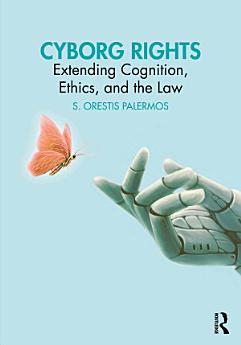Cyborg Rights: Extending Cognition, Ethics, and the Law
About this ebook
The discussion begins with an accessible introduction to the Hypothesis of Extended Cognition and the Extended Mind Thesis, responding to pressing objections and arguing that humans likely already are—or will soon become—cyborgs. Far from science fiction, the rapid advancement of extension technologies—such as invasive brain–computer interfaces—brings this scenario, and its disruptive consequences across ethics, rights, and the law, ever closer to reality. To underscore the stakes, the book focuses on key concerns relating to mental privacy, mental integrity, and extended forms of assault. It also outlines the values and factors we must consider as we transition into a world where the boundaries of the mind are increasingly fluid. Crucially, it argues that both legal and technological safeguards can be developed to mitigate the most troubling effects of cognitive and mental extension.
Cyborg Rights is the first book to offer a systematic analysis of this emerging topic, situated at the intersection of the philosophy of mind and cognitive science, ethics, and philosophy of law.
About the author
S. Orestis Palermos is Assistant Professor of Philosophy at the University of Ioannina, Greece, specialising in contemporary analytic philosophy. With a background in chemical engineering, he earned an MSc and PhD in Philosophy from the University of Edinburgh and has held academic positions in the UK. He has published in prominent philosophy journals and co-edited Feminist Philosophy and Emerging Technologies, Extended Epistemology, and Socially Extended Epistemology.






